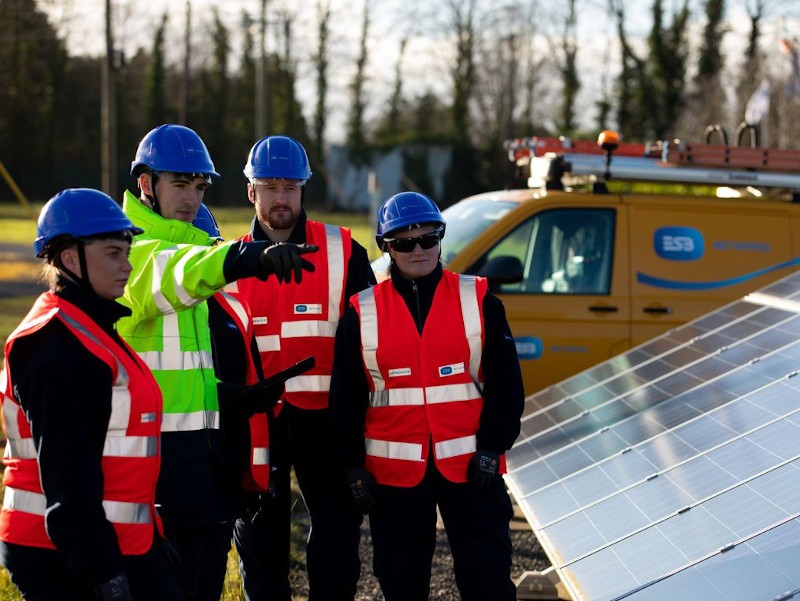
Minister for Climate Eamon Ryan, TD, said the 1GW figure marks an ‘important milestone’ in Ireland’s solar power journey.
ESB Networks has today (26 February) announced a major milestone in its journey to 8GW of solar connections by 2030.
The utility company said it now has 1,000MW or 1GW of solar photovoltaic (PV) generation connected to Ireland’s electricity network.
The milestone includes 500MW of utility-scale solar connections, 369 MW of which is from larger projects connected to the transmission system, managed by EirGrid. At the beginning of this year, German solar energy company Greencells won the contract for the first of a series of solar farms being constructed by ESB.
The 1GW figure also includes 300MW of microgeneration – mainly domestic rooftop solar – and 200MW of non-exporting solar generation. According to ESB Networks, 1GW of solar power is enough to power the equivalent of approximately 400,000 homes when it is sunny.
Rooftop revolution
Minister for Environment, Climate, Communications and Transport Eamon Ryan, TD, said the rapid scale up of small-scale solar power generation has been mirrored by the growth in connection of utility-scale solar farms.
“Since I launched the first solar farm in Co Wicklow in May 2022, there has been a major acceleration in the deployment of solar farms, providing new income streams to farmers, supporting jobs and benefitting communities across the country,” he said.
“Today’s announcement marks an important milestone in Ireland’s journey to 8GW of solar connections by 2030 and shows that even in ‘cloudy Ireland’ we can harness our homegrown green resources to power homes and businesses.”
Nicholas Tarrant, managing director of ESB Networks, added that this scale of connections is reducing Ireland’s dependence on imported fossil fuels.
It’s not always sunny
While wind energy remains the dominant source of renewable electricity generation in Ireland, solar energy’s presence is set to grow significantly over the coming years.
But while investment in solar energy projects is a positive step away from fossil fuels, a KPMG report in December 2023 highlighted concerns that Ireland’s grid is not strong enough to handle the number of solar and wind energy projects that would be required to hit the country’s 2030 energy goals.
There are also concerns that solar panels could generate huge amounts of waste in the future when they are replaced with more efficient models down the line, as they are mostly made of low-value material.
Find out how emerging tech trends are transforming tomorrow with our new podcast, Future Human: The Series. Listen now on Spotify, on Apple or wherever you get your podcasts.

